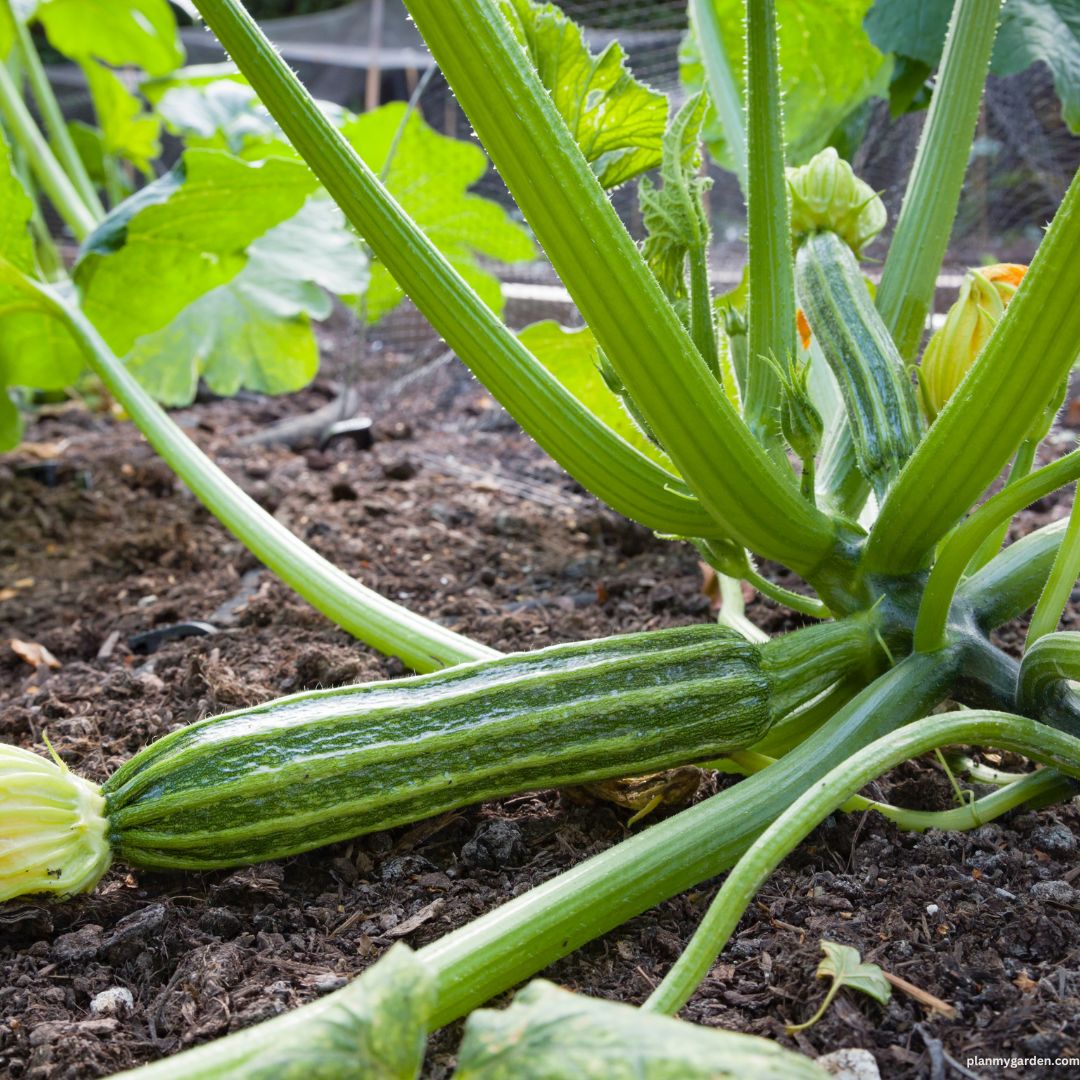
Have you ever been overwhelmed by the sheer variety of zucchini at the farmer's market? From classic dark green beauties to sunny yellow gems, the world of zucchini is far more diverse than you might think. Let's delve into the wonderful world of zucchini and discover the many different types of zucchini plants you can grow in your garden or find at your local grocery store.
Understanding The Different Types of Zucchini Plants
Zucchini, a summer squash, belongs to the Cucurbita pepospecies, a family known for its versatility. What many people don't realize is that within this species lies a wide range of cultivars, each with unique characteristics. These differences impact everything from the plant's growth habit to the fruit's size, shape, color, and flavor. Understanding these distinctions allows gardeners to choose the best zucchini varieties for their specific needs and preferences. Whether you're looking for disease resistance, unique flavors, or specific culinary applications, there's a zucchini type out there for you.
Bush Types of Zucchini Plants
Bush zucchini varieties are perfect for gardeners with limited space. Instead of sprawling vines, these plants have a compact growth habit, making them ideal for containers or small gardens. They typically produce a large number of zucchini in a concentrated period, which can be great for canning or freezing your harvest. Here is some insight on bush types of zucchini plants:
Classic Green Bush Zucchini
These are the most common zucchini types. They produce dark green, cylindrical fruits. Popular cultivars include:
- Black Beauty: A reliable and prolific producer.
- Fordhook: Known for its disease resistance.
- Dark Green Zucchini: A standard choice, readily available as seeds or starter plants.
These varieties are versatile in the kitchen, suitable for grilling, baking, sautéing, and even shredding for zucchini bread. Their consistent performance makes them a favorite among home gardeners.
Gold or Yellow Bush Zucchini
These zucchini varieties offer a beautiful splash of color in the garden and on the plate. They generally have a slightly sweeter and more delicate flavor than their green counterparts. Some popular options include:
- Golden Zucchini: A bright yellow, cylindrical fruit.
- Gold Rush: Another well-regarded yellow zucchini variety, known for its consistent yields.
Round Zucchini Varieties
These unique zucchini varieties produce spherical fruits, offering a fun twist on the classic zucchini shape. They are excellent for stuffing, as their round shape makes them easy to fill. Some popular options are:
- Eight Ball Zucchini: A dark green, almost perfectly round zucchini.
- One Ball Zucchini: Similar to Eight Ball, but often slightly smaller.
- Ronade Zucchini: A beautiful light green globe-shaped zucchini, almost like a baby watermelon.
When preparing round zucchini, consider halving or scooping out the center to create a bowl for filling with your favorite ingredients. Think seasoned ground meat, rice, vegetables, or cheese.
Vining Types of Zucchini Plants
Vining zucchini plants require significantly more space than bush varieties. They can grow very long vines, often needing a trellis or support system. These types may be suited for farms or home gardens that are big enough to have plants crawl.
Tromboncino Zucchini
This Italian heirloom zucchini is technically a summer squash, but it's often used and referred to as a zucchini. It has a long, curved neck and a bulbous end. The taste is sweet, nutty, and really flavorful. It's also not particularly watery as some summer squash can be. Here are some attributes of Tromboncino zucchini:
- Unique Shape: It's instantly recognizable with its curving shape and bulbous end.
- Flavor: It tends to be sweeter and nuttier than many other zucchini varieties.
- Size: It can grow very long, sometimes reaching several feet in length.
Costata Romanesco Zucchini
An Italian heirloom zucchini, noted for its slightly ribbed fruit and distinct nutty flavor. Here's some information regarding this type of zucchini plant:
- Distinctive Ribs: The fruit features prominent ridges, giving it a unique appearance.
- Flavor: Its flesh is flavorful and has a lovely texture.
- Growing: Plant seeds in the spring season after the last frost.
Considerations When Choosing Types of Zucchini Plants
Selecting the right type of zucchini depends on several factors. Here are a few key points to consider:
Garden Space
Bush varieties are best for small gardens, while vining types need plenty of room to spread.
Culinary Uses
Consider how you plan to use the zucchini. Round zucchini are great for stuffing, while classic green zucchini are versatile for all sorts of recipes.
Disease Resistance
Some varieties are more resistant to common zucchini diseases like powdery mildew. If this has been a problem in the past, choose a disease-resistant cultivar.
Flavor Preferences
Yellow zucchini and Tromboncino tend to have a sweeter flavor than green zucchini.
Growing Tips for All Types of Zucchini Plants
Regardless of the variety you choose, there are some general tips that will help you grow healthy and productive zucchini plants:
- Sunlight: Zucchini needs at least 6 hours of sunlight per day.
- Soil: Plant in well-drained soil that is rich in organic matter.
- Watering: Water deeply and regularly, especially during dry spells. Avoid overhead watering, which can promote fungal diseases.
- Fertilizing: Fertilize regularly with a balanced fertilizer.
- Pest Control: Watch out for common zucchini pests like squash bugs and squash vine borers. Use appropriate pest control methods if necessary.
- Harvesting: Harvest zucchini when they are young and tender. Overripe zucchini can become tough and seedy.
By understanding the different types of zucchini plants and following these growing tips, you can enjoy a bountiful harvest of this delicious and versatile summer squash. Happy gardening!